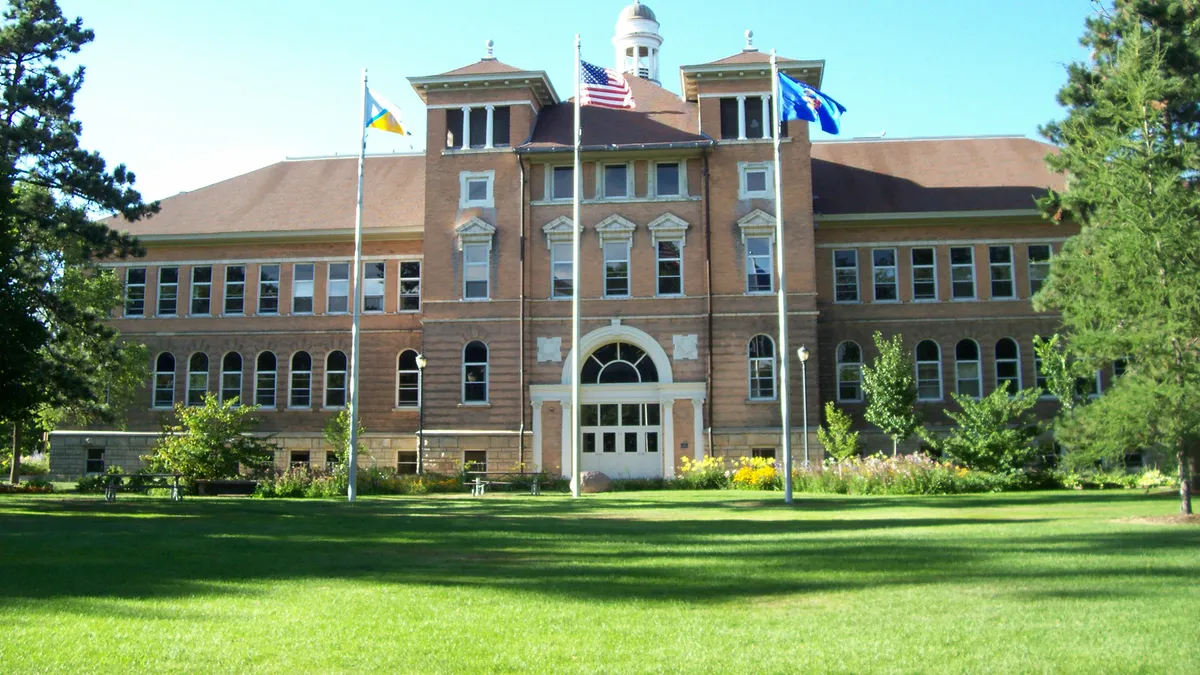Dive Brief:
-
The Wisconsin State Legislature's budget committee last week approved more than $1 billion for building renovations and repairs throughout the University of Wisconsin System, Wisconsin Public Radio reported.
-
The Republican-controlled committee cut Democrat Gov. Tony Evers' request for the university's 2019-2021 capital construction program by about $40 million. It goes to the full legislature for a vote and is expected to reach the governor by June 30.
-
Describing a system in need of upgrades, university officials lobbied for the funding in the run-up to the vote. Funds include $130 million toward a new chemistry building at UW-Milwaukee.
Dive Insight:
Colleges and universities across the U.S. are struggling to find the money to perform much needed deferred maintenance on their aging buildings before considering new construction.
Deferred maintenance is the term for when building repairs or the purchase of new equipment is put off because of budget shortfalls. Institutions of higher learning are left with no option but to do this when they are tight on cash.
The problem, however, is that over many years, the backlog of work can grow to what seems like insurmountable levels. As of 2016, it was estimated U.S. colleges had a $30 billion backlog of deferred work.
Joining UW in its fight to fund deferred maintenance on its campuses are the Missouri Department of Higher Education ($1.4 billion); the state of Illinois ($6.7 billion); and the University of California and California State University systems ($8 billion, combined).
Colleges' capital spending on existing facilities reached a decade high in 2017 at $5 per gross square foot, with more likely needed, according to a recent report that pulled data from 360 campuses. The spending represents a period following the recession in which colleges built amenities to attract students — a trend that could prove troublesome amid projections of enrollment declines.
Some colleges are turning to private partners for help. In a recent survey of 249 college leaders, more than half said they would do so to develop campus facilities and infrastructure. Advocates of such public-private partnerships say they help institutions by sharing the risk inherent in construction projects while speeding up the timeline.
The University of California, Merced, for instance, is in the middle of a $1.3 billion project with a private partner to design, build out, operate and maintain a set of buildings and infrastructure that would about double its footprint.










